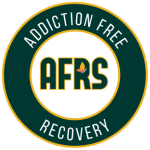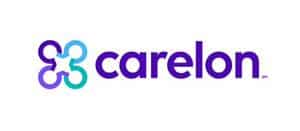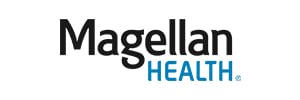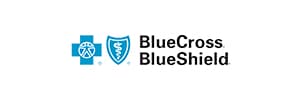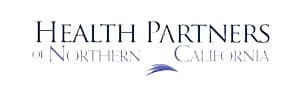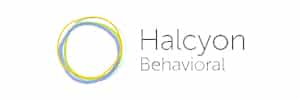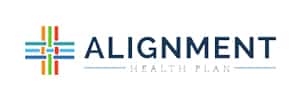Addiction treatment has traditionally focused on detoxification and behavioral therapies, but more people are discovering the benefits of incorporating alternative therapies into their recovery journey. These holistic approaches can complement conventional methods, offering additional support and enhancing overall well-being.
Essential Takeaways
- Holistic Healing Enhances Recovery: Incorporating alternative therapies into addiction treatment provides a more comprehensive approach to healing by addressing physical, emotional, and spiritual aspects. This holistic treatment approach recognizes that mental health issues are often intertwined with physical health, requiring a multifaceted solution.
- Tailor Therapies to Your Needs: Effective integration of alternative therapies involves selecting those that align with your recovery goals and personal preferences, ensuring they support your overall treatment options.
- Monitor and Adjust: Regularly track your progress and be prepared to make adjustments based on your experiences with alternative therapies to ensure they contribute positively to your recovery journey. This adaptability is crucial for achieving optimal health.

In this post, we’ll explore various alternative therapies, how they fit into addiction treatment, and the benefits they can bring. Whether you’re seeking new ways to support your recovery or just curious about holistic approaches, this guide will help you understand the diverse options available.
What Are Alternative Therapies in Addiction Treatment?
Defining Alternative Therapies
Alternative therapies refer to non-mainstream practices used to support health and healing. Unlike traditional medical treatments, which often focus on pharmaceuticals and surgery, alternative medicine employs a wide range of approaches to address physical, emotional, and spiritual aspects of well-being. In the context of addiction treatment, these therapies are used alongside conventional medicine to enhance recovery, manage symptoms, and support long-term sobriety.
The Holistic Approach
A holistic approach to health considers the whole person—mind, body, and spirit. Rather than focusing solely on the addiction itself, holistic therapies aim to improve overall health and well-being. This perspective acknowledges that addiction often affects multiple areas of a person’s life and that healing requires a comprehensive approach.
By integrating alternative therapies with traditional treatments like counseling and medication, individuals can benefit from a more rounded and personalized recovery plan. Holistic health practices address underlying issues, promote emotional balance, and support physical health, making them a valuable tool in any addiction treatment program.
Exploring Popular Alternative Therapies
Acupuncture
Acupuncture, a traditional Chinese medicine practice, involves inserting thin needles into specific points on the body to stimulate energy flow and promote healing. In addiction treatment, acupuncture can be particularly helpful in managing withdrawal symptoms and cravings.
How It Helps:
- Reduces Withdrawal Symptoms: Acupuncture may help alleviate symptoms like anxiety, insomnia, and nausea that often accompany withdrawal, promoting better mental wellness.
- Decreases Cravings: By stimulating certain points, acupuncture can help reduce cravings and support the process of recovery.
- Research Findings: Several studies have shown that acupuncture can be effective in reducing withdrawal symptoms and cravings. For instance, a study published in the Journal of Substance Abuse Treatment found that acupuncture significantly reduced withdrawal symptoms in individuals undergoing detoxification.

Yoga and Meditation
Yoga therapy and meditation are practices that focus on the mind-body connection, promoting relaxation, mindfulness, and overall well-being. Both have gained popularity as complementary therapies in addiction recovery due to their benefits for mental health disorders.
How They Help:
- Reduces Stress: Yoga and meditation help manage stress and anxiety, which are common triggers for substance use. Incorporating stress management techniques into daily life can greatly enhance recovery.
- Improves Mental Clarity: These practices enhance self-awareness and mental clarity, aiding in emotional regulation and decision-making, which is essential for maintaining sobriety.
- Benefits in Recovery: Practicing yoga and meditation can improve emotional stability and resilience. Research published in Substance Use & Misuse has demonstrated that these practices can reduce stress and improve mood, contributing to a more stable recovery process.
Nutritional Therapy
Nutrition plays a crucial role in addiction recovery. Substance abuse can deplete essential nutrients, leading to deficiencies that affect overall health. Nutritional therapy focuses on restoring balance and supporting physical healing through dietary changes and supplementation.
How It Helps:
- Restores Nutrient Deficiencies: A balanced diet helps replenish nutrients lost during substance abuse, supporting overall health and recovery.
- Improves Energy Levels: Proper nutrition boosts energy levels and overall vitality, aiding in the recovery process.
- Dietary Changes: Incorporating whole foods, lean proteins, and healthy fats can support the body’s healing process. Supplements such as vitamins and minerals may also be recommended to address specific deficiencies.
Art and Music Therapy
Creative therapies like art therapy and music therapy provide alternative ways for individuals to express and process their emotions. These therapies can be especially beneficial in addiction recovery, offering a non-verbal outlet for feelings and experiences.
How They Help:
- Facilitates Emotional Expression: Art and music therapy help individuals explore and express their emotions in a safe and constructive way.
- Enhances Self-Esteem: Engaging in creative activities can boost self-esteem and provide a sense of accomplishment, positively impacting one’s emotional health.
- Research Insights: Studies, including those published in The Arts in Psychotherapy, have shown that art and music therapy can improve emotional well-being and reduce symptoms of depression and anxiety, which are often associated with addiction.
Herbal and Nutritional Supplements
Herbal and nutritional supplements can support addiction recovery by addressing various aspects of health, from mood regulation to physical wellness. Common supplements used in addiction treatment include St. John’s Wort, which may help with mood stabilization, and omega-3 fatty acids, which support brain health.
How They Help:
- Supports Mood Regulation: Supplements like St. John’s Wort can help stabilize mood and alleviate symptoms of depression.
- Enhances Brain Function: Omega-3 fatty acids support cognitive function and overall brain health, critical for long-term recovery and mental clarity.
- Considerations: While some supplements have demonstrated benefits, it’s important to consult with a healthcare professional before starting any new supplements, especially if you’re undergoing other treatments.
How to Incorporate Alternative Therapies into Your Treatment Plan
Collaborating with Healthcare Providers
Integrating alternative therapies into your treatment plan requires coordination with your health care professional. It’s essential to discuss any new therapies with your treatment team to ensure they complement your existing treatment and do not interfere with other medications or therapies.
Tips for Collaboration:
- Open Communication: Share your interest in alternative therapies with your healthcare provider and discuss how they might fit into your recovery plan.
- Seek Professional Guidance: Work with professionals experienced in both conventional and alternative treatments to create a cohesive and effective plan. Holistic health practitioners can offer insights into effective combinations of treatments.
Developing a Personalized Plan
A successful integration of alternative therapies involves tailoring them to your individual needs and preferences. Consider your goals, interests, and any specific challenges you face in your recovery.

Creating a Balanced Plan:
- Identify Your Needs: Assess which alternative therapies align with your recovery goals and personal preferences. For example, if you struggle with stress, you might prioritize relaxation exercises or yoga therapy.
- Set Realistic Goals: Establish clear, achievable goals for incorporating these therapies into your routine, enhancing your daily life.
Monitoring Progress and Adjusting Approaches
Regularly monitoring your progress with alternative therapies helps ensure they are benefiting your recovery. Be prepared to make adjustments based on how you respond to different therapies and any changes in your needs.
Tracking Progress:
- Keep a Journal: Document your experiences with alternative therapies, including any changes in symptoms or overall well-being. This practice can provide insights into the effectiveness of various approaches.
- Evaluate Effectiveness: Periodically review the impact of these therapies on your recovery and adjust your plan as needed. This reflective process is crucial for long-term health.
The Benefits and Challenges of Alternative Therapies
Benefits of Alternative Therapies
Alternative therapies offer several advantages in addiction treatment, including:
- Enhanced Emotional Well-Being: Many alternative therapies promote emotional balance and stress reduction, contributing to a more stable recovery.
- Improved Physical Health: Nutritional therapy and supplements can support overall health and address deficiencies caused by substance abuse.
- Greater Self-Awareness: Practices like yoga and meditation enhance self-awareness and mindfulness, supporting personal growth and resilience.
Potential Challenges and Limitations
While alternative therapies offer many benefits, they also come with potential challenges:
- Lack of Scientific Evidence: Some alternative therapies may lack robust scientific evidence supporting their effectiveness, making it important to approach them with informed caution.
- Interactions with Conventional Treatments: Certain supplements or practices may interact with medications or other treatments, so it’s crucial to consult with healthcare professionals.
Navigating Challenges:
- Research Thoroughly: Investigate the evidence and consult with knowledgeable professionals before starting new therapies.
- Monitor for Interactions: Pay attention to how new therapies affect your overall treatment plan and adjust as needed.
Holistic Approach to Addiction Recovery
Power of a Comprehensive Treatment Plan
Integrating alternative therapies into your addiction treatment plan can enhance your overall recovery experience. By addressing physical health, emotional health, and spiritual aspects of health, holistic approaches offer a more comprehensive path to healing.
Holistic Benefits:
- Balanced Healing: A holistic approach supports balanced healing by addressing all dimensions of well-being.
- Personalized Care: Tailoring therapies to your unique needs ensures a more effective and fulfilling recovery journey.
Taking the Next Step
If you’re ready to explore how alternative therapies can support your recovery, take the first step by reaching out to a health care professional or treatment specialist. They can help you incorporate these therapies into your plan and guide you on your journey to a healthier, more balanced life.
Call to Action:
Ready to enhance your recovery with holistic approaches? Contact us today to learn more about integrating alternative therapies into your treatment plan. Our expert team is here to help you explore these options and create a personalized plan that supports your journey to lasting recovery. Don’t wait—reach out now to start your path to holistic healing!
FAQs
What are some common alternative therapies used in addiction treatment?
Common alternative therapies include acupuncture, yoga, meditation, music therapy, art therapy, nutritional therapy, and herbal supplements. Each offers unique benefits and can support various aspects of recovery.
How do alternative therapies support addiction recovery?
Alternative therapies support addiction recovery by addressing underlying issues, reducing stress and cravings, improving emotional well-being, and promoting physical health. They complement traditional treatments and enhance overall recovery.
Are alternative therapies scientifically proven to be effective?
While some alternative therapies, such as acupuncture and yoga, have been supported by research, others may lack robust scientific evidence. It’s important to approach these therapies with informed caution and consult with healthcare professionals.
Can alternative therapies replace conventional treatments?
Alternative therapies should not replace conventional treatments but can be used alongside them to enhance recovery. They provide additional support and address aspects of well-being that traditional treatments may not cover.
How can I incorporate alternative therapies into my addiction treatment plan?
To incorporate alternative therapies, discuss your interest with your healthcare provider, develop a personalized plan based on your needs, and regularly monitor your progress. Collaboration with professionals ensures these therapies complement your existing treatment.

